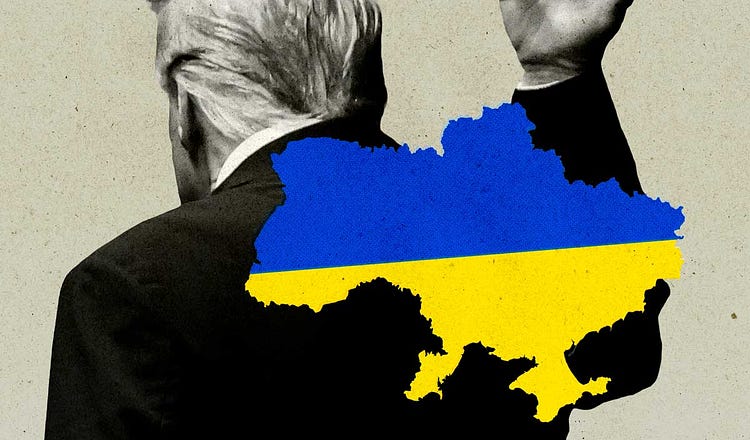
America has officially betrayed Ukraine.
It had been coming for months: On the campaign trail, Donald Trump had suggested he would do just that.
Then, in the course of one week, the new president of the United States initiated negotiations to end the war in Ukraine behind Ukraine’s back, called Ukrainian president Volodymyr Zelensky a “dictator,” and threatened to cut U.S. support for Ukraine—unless Ukraine forks over the rights to a huge chunk of the rare earth minerals it’s sitting on. (Ukraine said no.) To make sure no one missed this, Vice President J.D. Vance retweeted the president’s statement on X. Meanwhile, Defense Secretary Pete Hegseth announced Ukraine would have to give up some territory to end the war with Russia and that NATO admission was off the table—which is exactly what Russia wants.
Together, they were not simply telling Ukraine that America was overextended, or that the paradigm had shifted. They were broadcasting to the whole world that the United States could not offer so much as moral support to a country invaded by another country—a country run by a despot who wants to reassemble the empire the United States once crushed.
This was a betrayal not only of Ukraine, but America.


